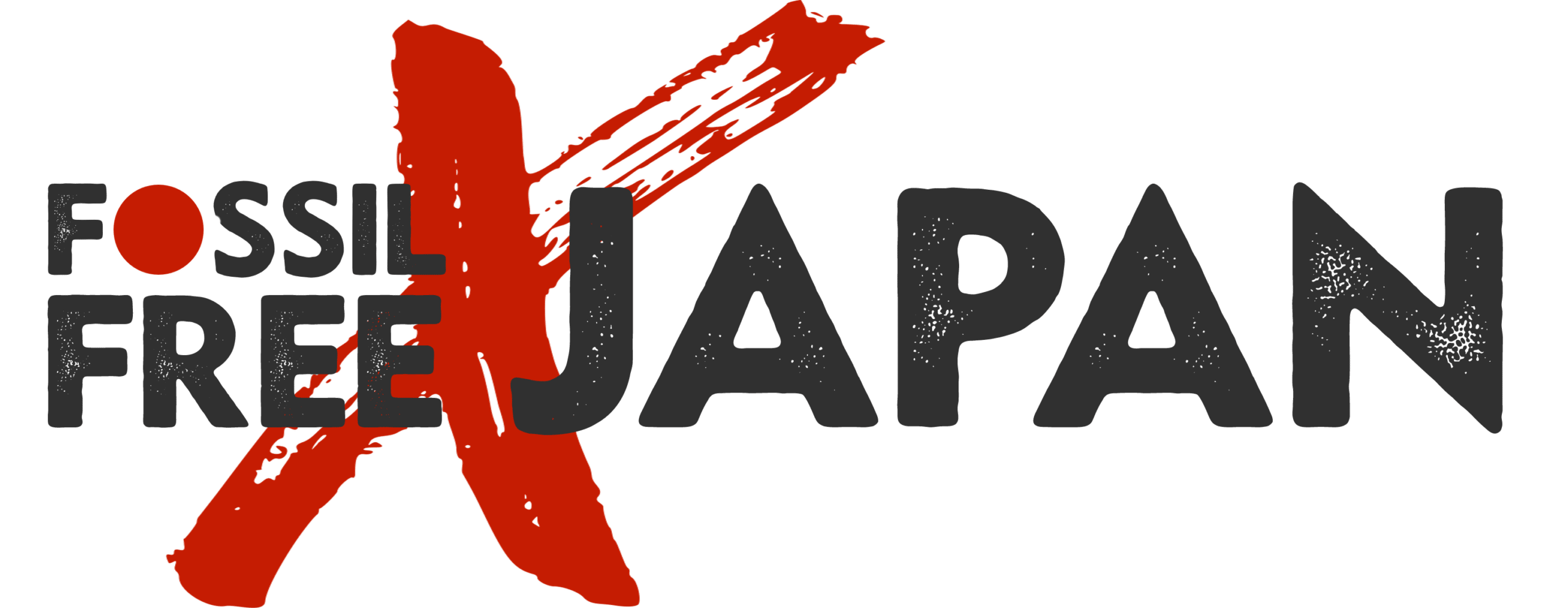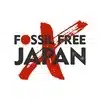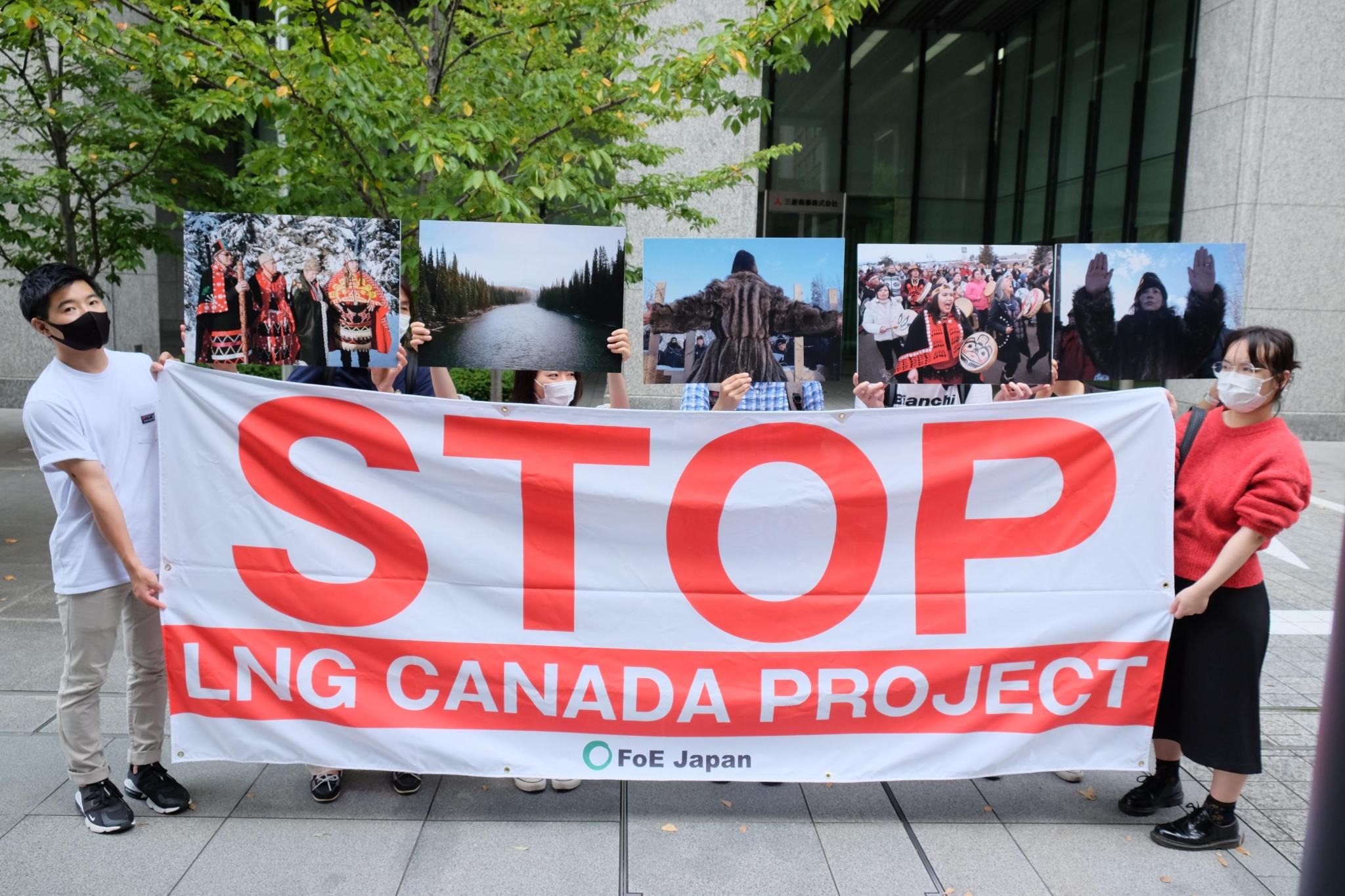
Projects
The Japanese government, megabanks and developers have poured billions of dollars and resources into developing fossil fuel projects around the globe. Here are a few controversial ones.
The LNG Canada project involves the liquefaction of shale gas extracted from Montney, British Columbia and transported through the 670 kilometer Coastal Gaslink pipeline to Kitimat.
In addition to its climate impacts, serious human rights violations against Indigenous Peoples have been reported with the Coastal GasLink pipeline project. The Coastal GasLink Pipeline Company is now pushing ahead with construction, ignoring the rights of the Wet’suwet’en First Nation.
In October 2021, JBIC approved a $850 million loan for LNG Canada. JBIC’s decision to finance the project violates its environmental and social guidelines which require that the free, prior and informed consent of indigenous peoples be obtained prior to financing.
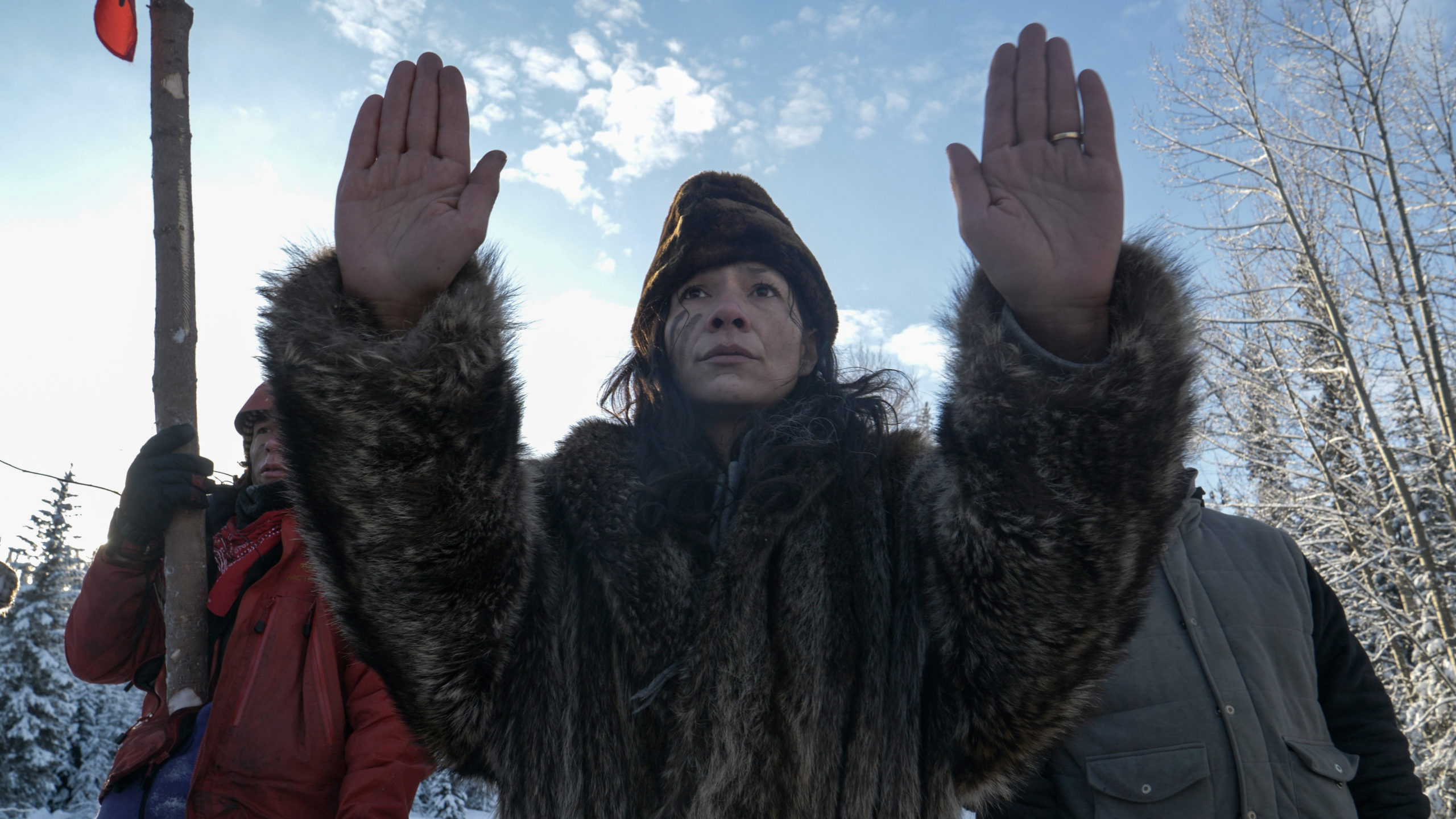
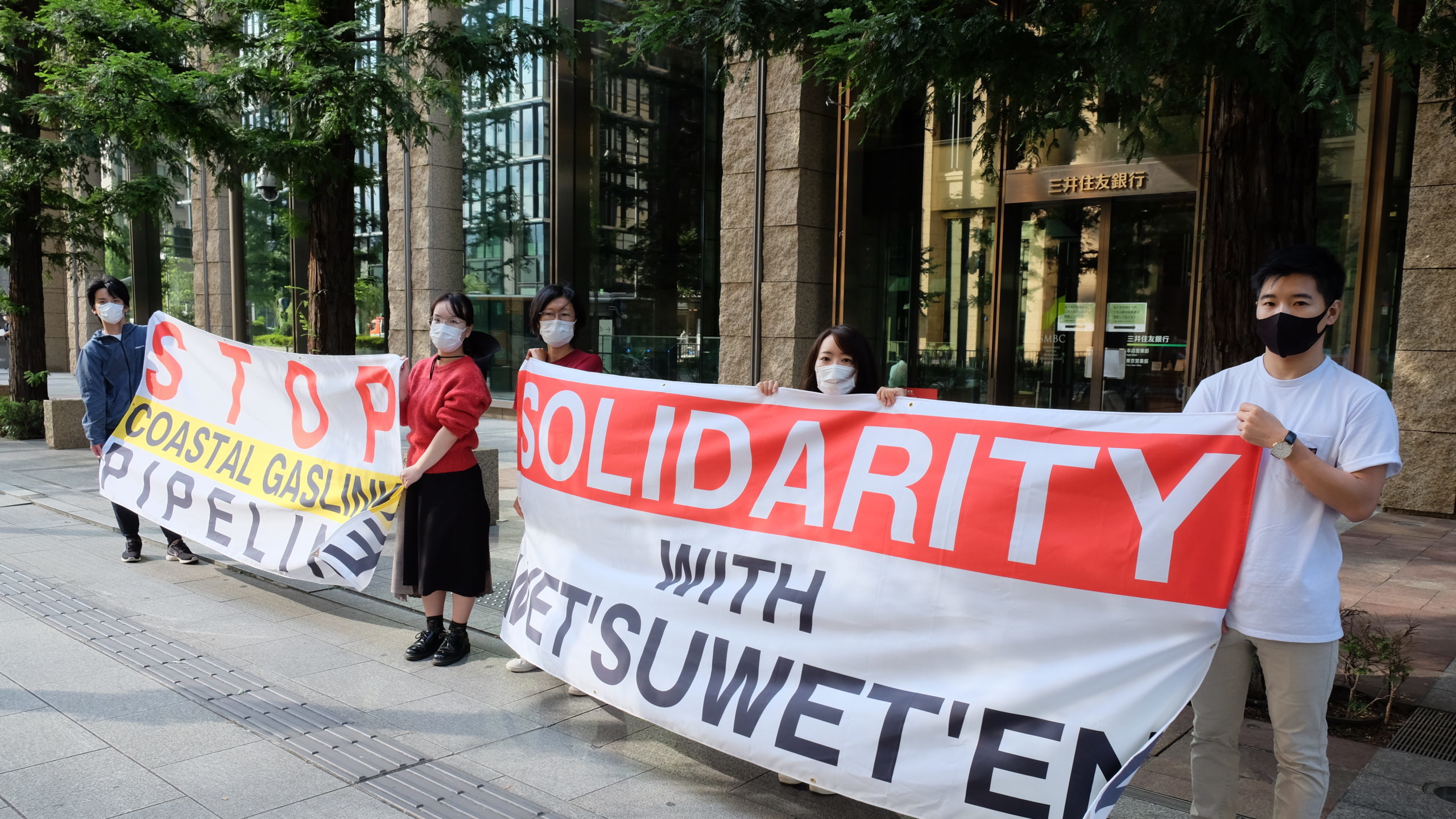
Matarbari 2 coal power plant, Bangladesh
The Japan International Cooperation Agency (JICA) was considering to finance for the Matarbari 2 coal-fired project in Bangladesh. However, after Sumitomo Corporation, a construction constructor of Matarbari Phase 1, announced not to participate in the EPC bidding for the Phase 2 construction in February, 2022, the Japanese government announced in June that it will not finance for the Phase 2 project.
However, as for the JICA-supported Matarbari Phase 1 project, construction work is already underway, and more than 2,000 fishermen who used to rely on the river have lost their livelihoods due to construction of Matarbari 1. Transportation has been disrupted as boats cannot navigate the river any longer. Mangrove forests along the river bank have also been destroyed. Locals report pollution from the project’s development work damaged adjacent shrimp farms, and the river water has become turbid after mixing with slit from the project work.
Moreover, the Bangladesh government is currently seeking to change its plans for Matarbari Phase 2 to a gas-fired project by using imported LNG. If Matarbari Phase 2 is converted to the gas-fired power plant, there is a risk that Bangladesh’s exposure to the volatile LNG market will increase, causing further financial pressure within the country. Since new construction of LNG gas-fired power plant is not an economically rational option for Bangladesh, we must continue to raise our voice to ensure that Japanese government does not support the false transition plan.
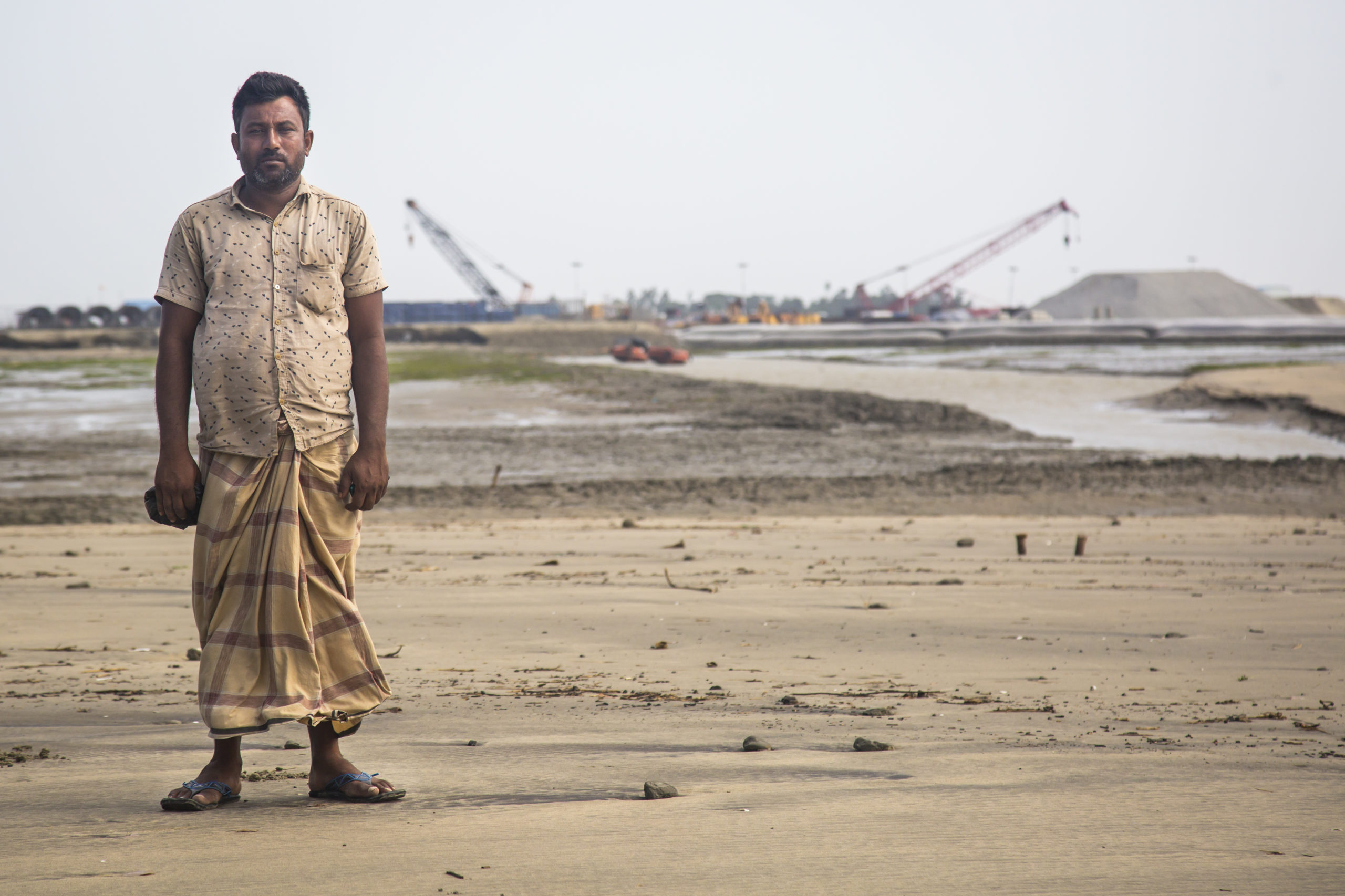
Barossa gas field project, Australia
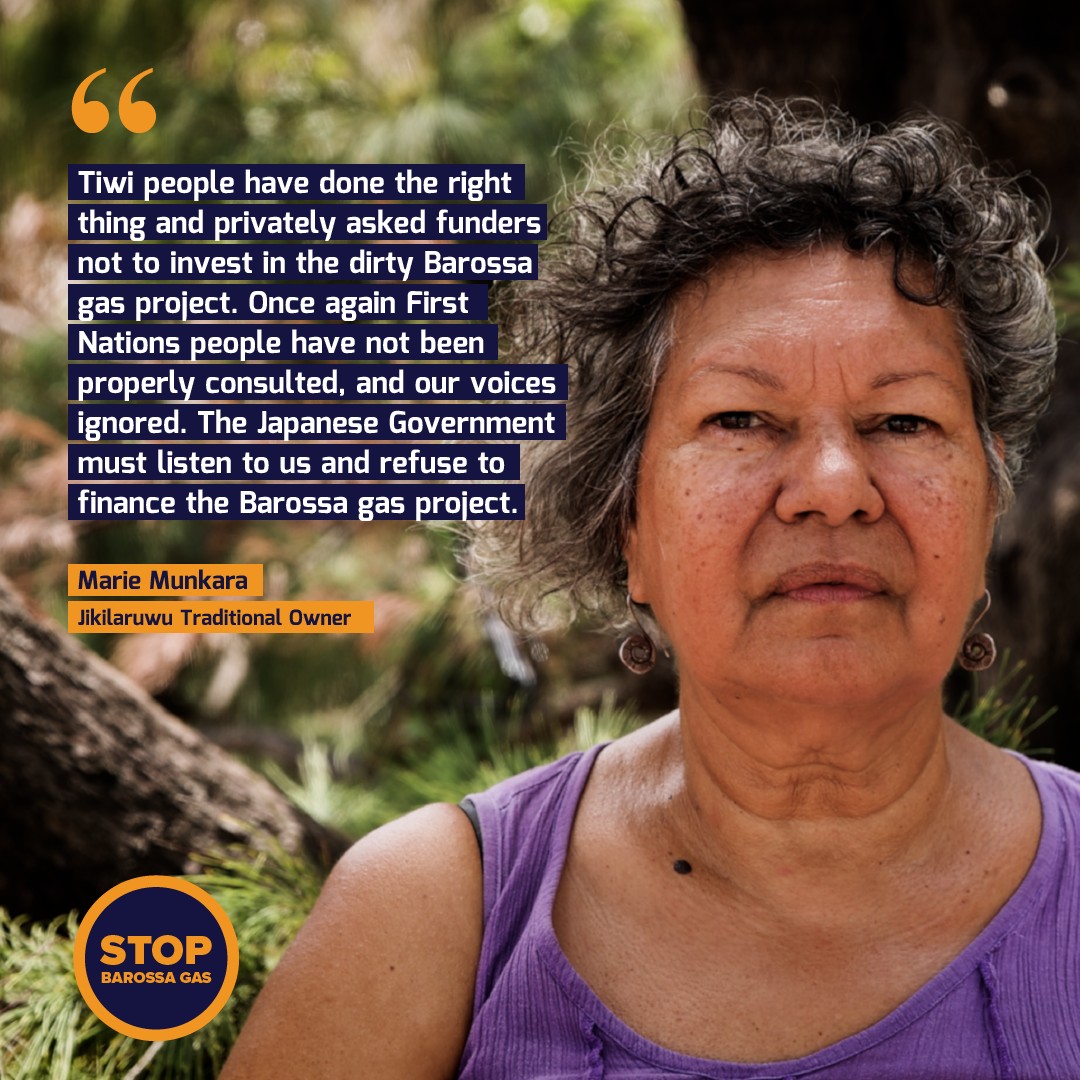
The Barossa gas project would be the most polluting offshore project in Australia, possibly the world.
The gas extracted from the Barossa field will be piped to Darwin and provide backfill for Santos’ Darwin LNG facility. Plans to capture emissions with CCS are questionable. Even if successful, it would reduce only about 30% of emissions.
The project is proposed by Australia’s Santos, South Korea’s SK E&S, and JERA. JBIC decided in December 2021 to provide a $346 million loan for the project, co-financing with private banks.
The proposed gas pipeline would run through the Oceanic Shoals Marine Park and pass just six kilometers off the coast of the Tiwi Islands, where the Tiwi people, who are indigenous to Australia, live. The environmental and cultural impacts of the project could be enormous.
Despite JBIC’s requirement for obtaining the free, prior and informed consent of indigenous communities, it appears that the Tiwi people have not been meaningfully consulted at all. The lack of FPIC violates JBIC’s guidelines and the Equator Principles, which has been signed by Japanese private banks.
